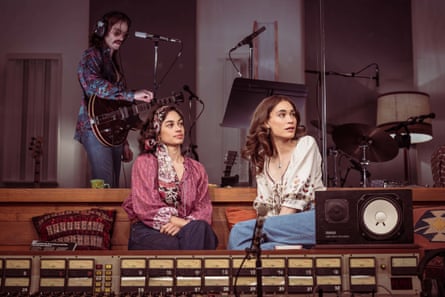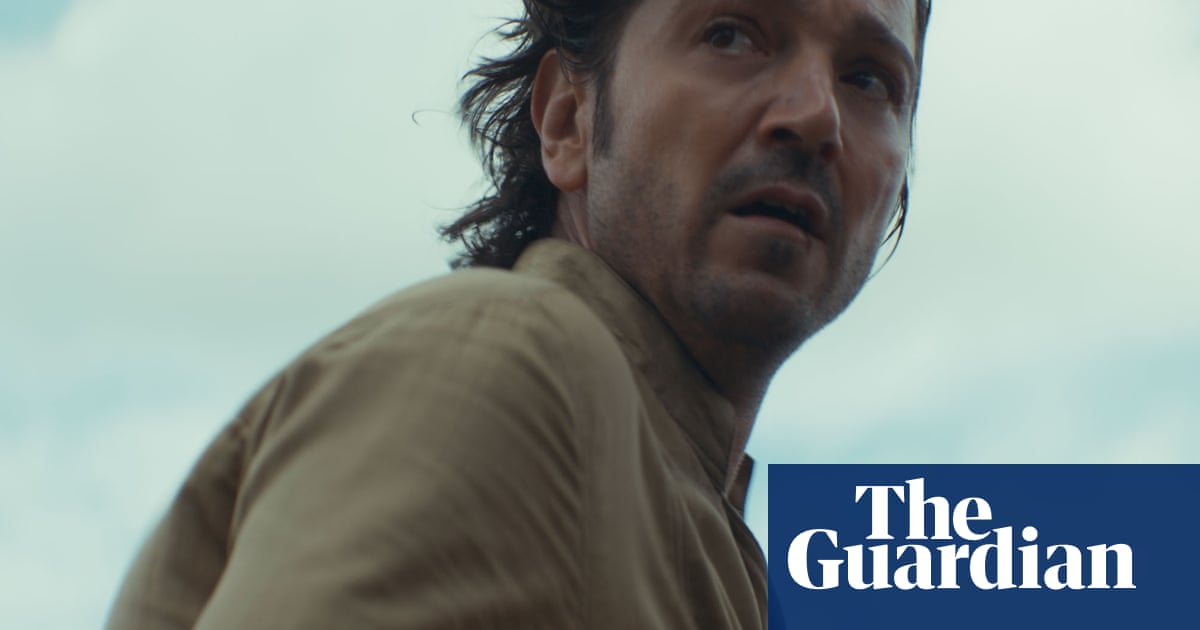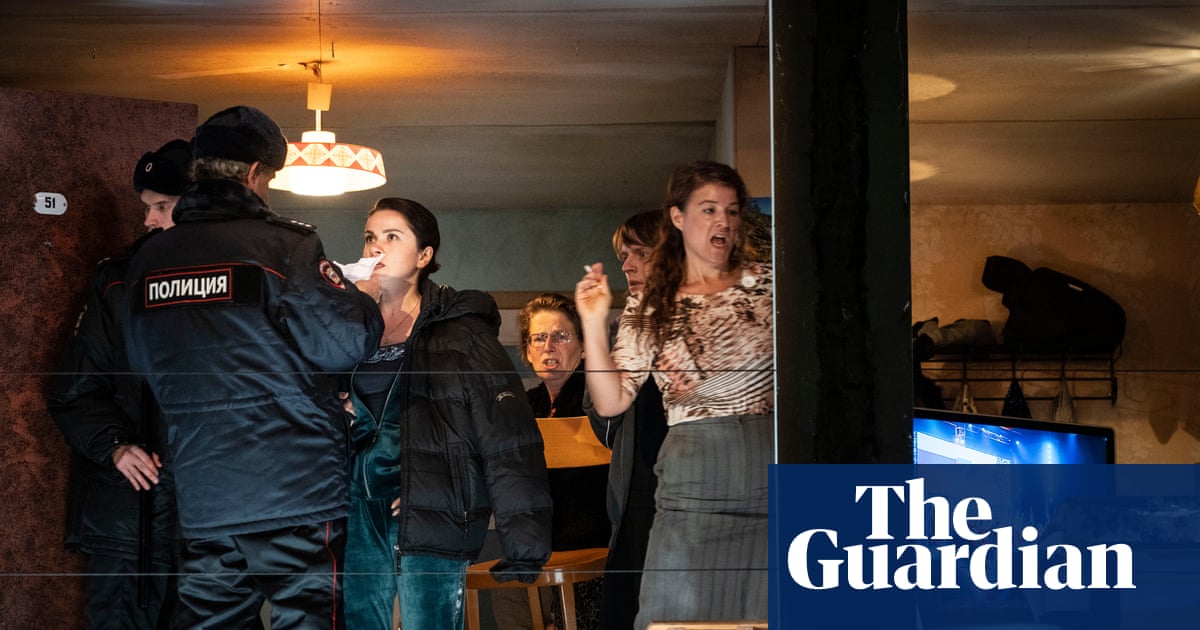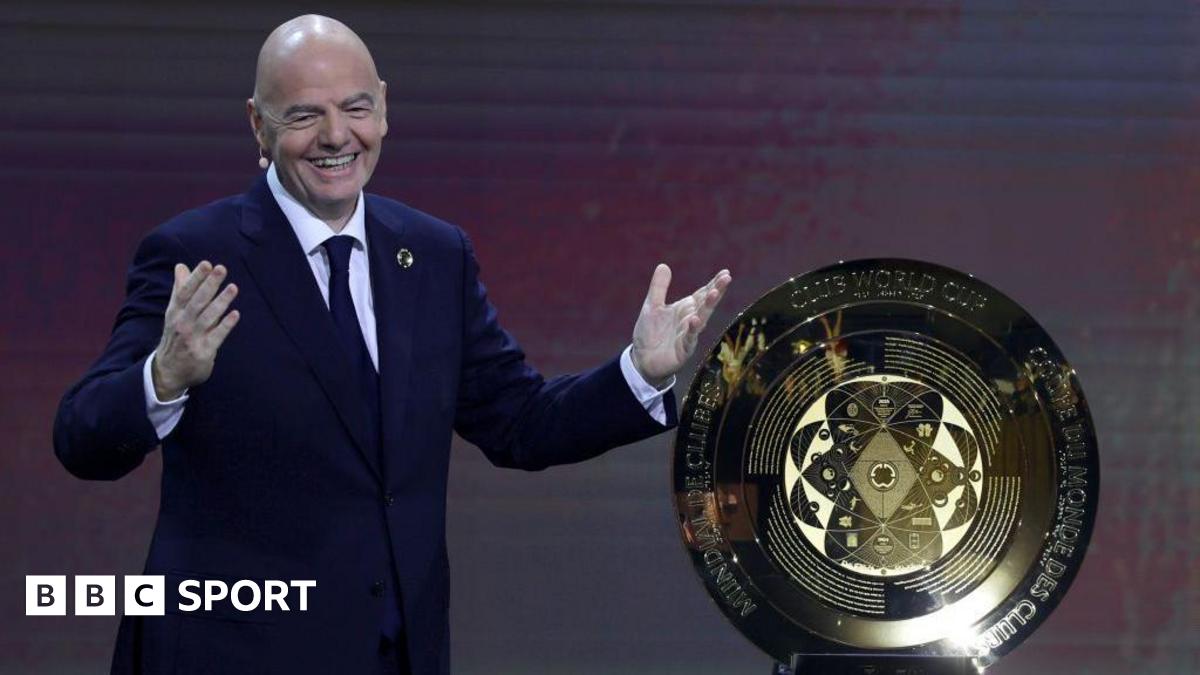If you’ve ever wanted to step into a 1970s recording studio, get to the Duke of York’s pronto. Stereophonic’s set designer David Zinn has rendered one meticulously, from the complex console and shabby furnishings of the mixing suite to the fully functioning recording booth it gazes upstage into. As the play’s fictional band gathers behind the glass, the dramatic possibilities of their pressurised containment are immediate.
David Adjmi’s music-infused drama – songs by Will Butler of Arcade Fire – arrives from Broadway trailing a record number of Tony nominations for a play, and a now-settled lawsuit. Fleetwood Mac’s erstwhile engineer felt the story too closely resembled the making of their best-known album. Rumours? Echoes, certainly. If you know the names Lindsey Buckingham and Stevie Nicks, chances are you’re going to read them in Peter, the band’s controlling genius, and Diana, whose need for independence grows with her rising star.

Their fellow bandmates are also under strain. Bass player Reg is feeding his addictions from a kilo-bag of cocaine: as the band approaches its chart-topping breakthrough, he’s on course for a breakdown. Zachary Hart’s physical performance vibrates with tragicomic energy while Nia Towle, as his wife, Holly, absorbs the consequences (“It’s a torture to need people”). Even Chris Stack’s peace-making Simon is rendered hysterical by an infuriating buzz from his drums.
Director Daniel Aukin’s production is as exacting and truthful as the script itself. Sounds and voices overlap as mic channels are opened and closed; silences are underscored with boredom and exhaustion. In between the kit-tinkering and longueurs are moments of creative transcendence, including a late-night epiphany so electrifying that the sound waves will excite your internal organs. The cast, playing their own instruments, convince as an ensemble of longstanding and Lucy Karczewski, as Diana, has a voice that captivates even when it is exposed and cracking in a tense overdubbing session.
Behind the mixing desk, Eli Gelb and Andrew Butler reprise their Broadway roles as inexperienced-but-ambitious engineer Grover and his oblivious sidekick Charlie. Grover may begin as a comic foil, desperate to avoid the whirlpool of angst, but like every character (including Jack Riddiford’s infuriating Peter) he is empathically realised across the band’s year-long odyssey. At more than three hours, the run time can feel as indulgent as one of Pink Floyd’s longer tracks – but this is an extraordinary allegory for artistic perfectionism and the destruction it leaves in its wake.

 8 hours ago
2
8 hours ago
2










 English (US)
English (US)